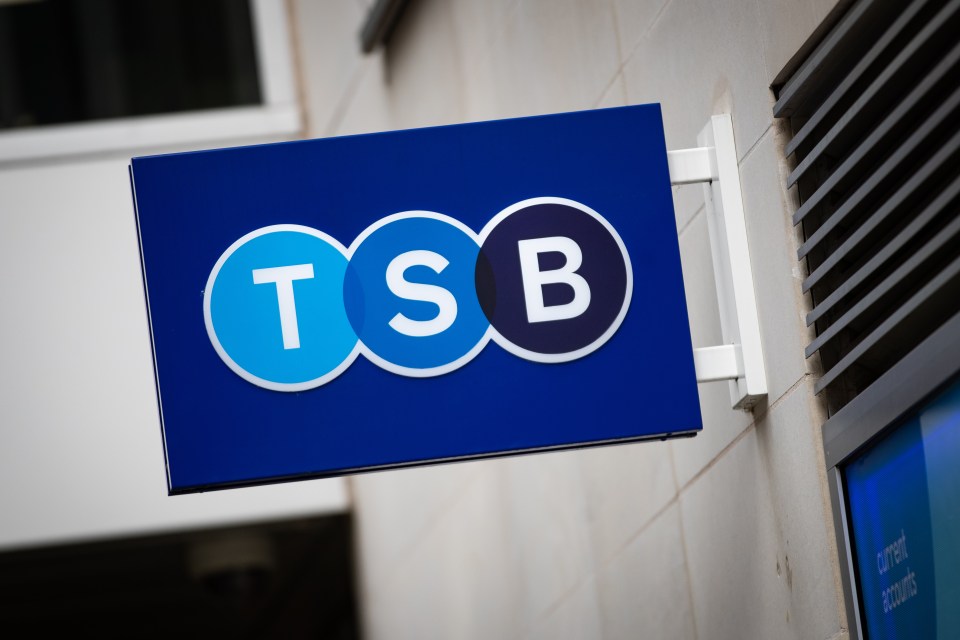TBS has issued a warning over a £100 charge that could hit some bank account customers.
It comes as households prepare their shopping lists for Black Friday and Christmas spending.
The high street bank analysed cases between January and October 2024 in which customers had been tricked into transferring money to fraudsters.
Tickets for concerts and football matches are among the items that scammers often offer – as are clothing including trainers, children’s toys, games consoles, designer items, and electrical goods, according to TSB.
Many cases originate on social media, it added.
However, mandatory reimbursement rules came into force in October, overseen by the Payment Systems Regulator (PSR).
Under the new rules, banks must reimburse APP fraud victims, unless the customer has been grossly negligent.
The new protections apply when a transfer is made to and from a UK bank account. They cover transactions made from October 7 onwards and do not apply retrospectively.
Reimbursement is mandatory up to the value of £85,000.
But, banks can also apply a £100 excess per claim, which means customers requesting a mandatory reimbursement must pay £100 themselves.
Some account providers have pledged to waive the excess – and some may also choose to consider claims for more than £85,000.
TSB, which has been operating its own fraud refund guarantee since 2019, has pledged to waive the £100 excess.
However, it warned that not all banks will do this.
TSB has also said it will continue to review claims outside the scope of the rules on a case by case basis.
The bank said it has found that nearly half (48%) of purchase fraud cases are for £100 or less.
The cases it has dealt with include a male customer who paid £50 for a ticket to a concert that was happening that evening.
The seller sent him a screenshot with the ticket on as proof and, once payment was made, the customer was then blocked.
Nicola Bannister, director of customer support, TSB, said: “At this time of year, we’re all shopping online more than ever – but it’s important to be wary of scams on social media platforms, as crooks are listing items that simply don’t exist.
“We’d advise sticking to reputable websites and only buying an item you’ve found on a social media platform if you can view it in person first.”
Can I be reimbursed if I fall for a scam?
Banks must reimburse authorised push payment (APP) fraud victims unless the customer has been “grossly negligent”.
Customers were initially set to receive reimbursements of up to £415,000.
However, the new rules have now implemented a cap of £85,000.
Banks can exceed this limit and repay higher amounts if they choose.
But, they also have the power to impose a £100 excess fee when settling claims, a policy that five banks have now adopted.
So, if your claim is for a payment of £100 or less, trying to recover the money may not be of any benefit.
Only four firms have pledged not to apply this charge: Nationwide, Virgin Money, TSB, and AIB.
Five banks – HSBC, First Direct, Lloyds, Halifax and Bank of Scotland – have said they will not cover fraud claims below £100.
The rest say that they “may” cover them or will judge each claim on a case-by-case basis.
Starling Bank says it may apply an excess of £50 rather than £100.
The £100 excess cannot be applied to vulnerable consumers under the Payment Systems Regulator’s (PSR) rules.
How to protect yourself from scams
BY keeping these tips in mind, you can avoid getting caught up in a scam:
- Firstly, remember that if something seems too good to be true, it normally is.
- Check brands are “verified” on Facebook and Twitter pages – this means the company will have a blue tick on its profile.
- Look for grammatical and spelling errors; fraudsters are notoriously bad at writing proper English. If you receive a message from a “friend” informing you of a freebie, consider whether it’s written in your friend’s normal style.
- If you’re invited to click on a URL, hover over the link to see the address it will take you to – does it look genuine?
- To be on the really safe side, don’t click on unsolicited links in messages, even if they appear to come from a trusted contact.
- Be careful when opening email attachments too. Fraudsters are increasingly attaching files, usually PDFs or spreadsheets, which contain dangerous malware.
- If you receive a suspicious message then report it to the company, block the sender and delete it.
- If you think you’ve fallen for a scam, report it to Action Fraud on 0300 123 2040 or use its online fraud reporting tool.















